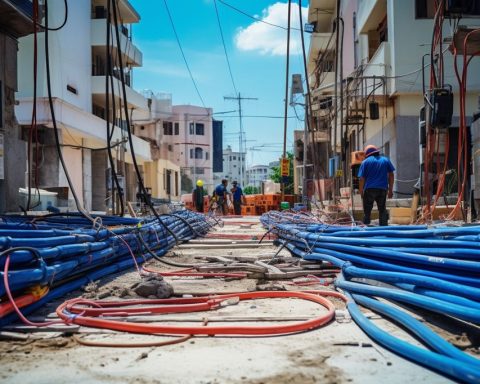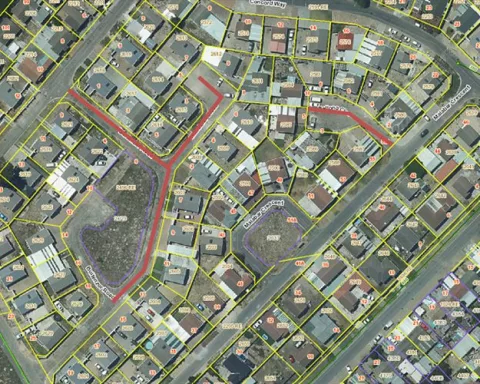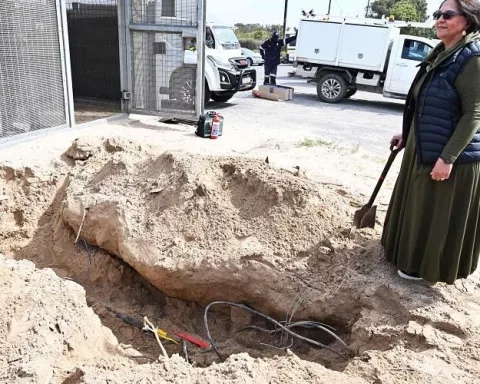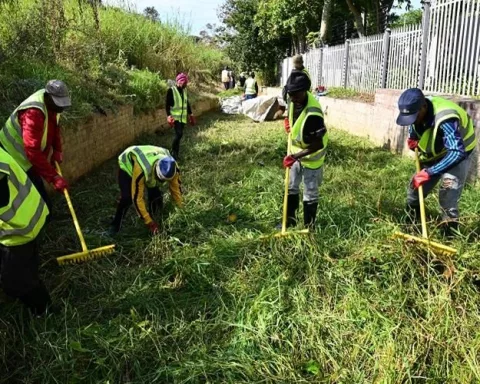The dispute over salary negotiations between the Public Servants Association (PSA) and the State Information Technology Agency (SITA) has led to a nationwide shutdown and could impact essential government services such as Home Affairs and SASSA. The PSA is demanding a 7.5% salary increase, while SITA is unwilling to respond favorably. The ongoing impasse highlights the challenges of public sector labor relations and underscores the crucial role of Minister Gungubele in resolving the conflict. Both parties need to engage in a meaningful dialogue to address employees’ concerns while preserving the integrity of government services.
What is the conflict between the Public Servants Association (PSA) and the State Information Technology Agency (SITA) and what are its consequences for government services?
The dispute between the PSA and SITA revolves around salary negotiations and has resulted in a nationwide shutdown, potentially disrupting essential government services such as Home Affairs and SASSA. The PSA is demanding a 7.5% salary increase, while SITA is unwilling to respond favorably. The ongoing impasse highlights the challenges of public sector labor relations and underscores the crucial role of Minister Gungubele in resolving the conflict.
Lately, the disagreement between the Public Servants Association (PSA) and the State Information Technology Agency (SITA) has intensified, resulting in the PSA announcing a nationwide shutdown starting on 16 October 2023. As a representative organization for most SITA employees, the PSA’s actions have significant repercussions for crucial government services such as Home Affairs and the South African Social Security Agency (SASSA). This article delves into the root of the dispute, the consequences of the shutdown, and the wider context of public sector labor relations.
Stalled Negotiations and Deadlock
The core of the conflict between PSA and SITA lies in salary negotiations. Despite attempts to reach a consensus for the 2022/23 fiscal year, both parties remain at an impasse. The PSA initiated lunchtime picketing on 9 October 2023 to raise awareness of their demands and express dissatisfaction with SITA’s unwillingness to respond favorably. This impasse has now led to the drastic measure of a nationwide shutdown, an action that could significantly disrupt crucial government services.
PSA’s Grievances and Demands
The PSA’s grievances center around SITA’s approach to collective bargaining and the slow progress of salary negotiations. They emphasize their members are deeply dissatisfied and feel compelled to continue their strike until their demands are met. The PSA is urging Minister Mondli Gungubele to step in by directing SITA’s board of directors to raise the salary offer to 7.5%, a figure they believe is necessary to break the deadlock.
Potential Consequences of the Shutdown
The PSA recognizes that a complete shutdown may interfere with network connectivity and government sector operations. Nevertheless, they assert that their cause justifies these measures. Essential services, including Home Affairs, Employment and Labor, and SASSA, might experience significant repercussions due to the strike. Citizens depending on these services may find themselves in a vulnerable position as the two parties remain entrenched in a struggle of wills.
Obstacles in Public Sector Labor Relations
The face-off between the PSA and SITA underscores the challenges encountered in public sector labor relations. Disputes between labor unions and government agencies are not uncommon, often resulting in deadlocks that can negatively impact public services. Striking a balance between addressing employee grievances and ensuring the continuity of public services is a delicate and ongoing task, requiring the attention of all parties involved.
The Crucial Role of Minister Gungubele
As the PSA appeals to Minister Gungubele to intervene, his role in resolving this conflict becomes increasingly vital. By directing the SITA board to enhance their salary offer, the minister might be able to break the impasse and prevent further disruption of government services. However, navigating the complex landscape of public sector labor relations may necessitate more than a mere increase in wages.
A Struggle of Wills
With the nationwide shutdown now underway, both the PSA and SITA remain steadfast in their respective positions. The PSA, representing the majority of SITA employees, is determined to fight for their demands and ensure their voices are acknowledged. Conversely, SITA’s unwillingness to respond favorably to the PSA’s demands could be due to budgetary limitations or a strategic method to labor relations.
Moving Forward
As the strike action progresses, the full extent of the disruption caused by the nationwide shutdown will become apparent. The impact on essential government services will undoubtedly cause concern among citizens regarding the availability and dependability of support from these institutions. Ultimately, resolving this deadlock depends on the willingness of both the PSA and SITA to engage in a meaningful dialogue that addresses employees’ concerns while preserving the integrity of government services.
The ongoing clash between the Public Servants Association and the State Information Technology Agency provides an insightful case study in public sector labor relations. The nationwide shutdown, triggered by a protracted impasse in salary negotiations, offers an opportunity to investigate the challenges faced by both parties in navigating this complex landscape. As the strike action persists, the implications for essential government services such as Home Affairs and SASSA become increasingly significant, highlighting the importance of swiftly and effectively resolving this dispute.
1. What is the conflict between the Public Servants Association (PSA) and the State Information Technology Agency (SITA) and what are its consequences for government services?
The conflict between the PSA and SITA revolves around salary negotiations and has resulted in a nationwide shutdown, potentially disrupting essential government services such as Home Affairs and SASSA. The PSA is demanding a 7.5% salary increase, while SITA is unwilling to respond favorably. The ongoing impasse highlights the challenges of public sector labor relations and underscores the crucial role of Minister Gungubele in resolving the conflict.
2. What are the grievances and demands of the PSA in this conflict?
The PSA’s grievances center around SITA’s approach to collective bargaining and the slow progress of salary negotiations. They emphasize their members are deeply dissatisfied and feel compelled to continue their strike until their demands are met. The PSA is urging Minister Mondli Gungubele to step in by directing SITA’s board of directors to raise the salary offer to 7.5%, a figure they believe is necessary to break the deadlock.
3. What potential consequences could the shutdown have on essential government services?
The shutdown could interfere with network connectivity and government sector operations, causing significant disruptions to essential services such as Home Affairs, Employment and Labor, and SASSA. Citizens depending on these services may find themselves in a vulnerable position as the two parties remain entrenched in a struggle of wills.
4. Why is Minister Gungubele’s role crucial in resolving this conflict?
As the PSA appeals to Minister Gungubele to intervene, his role in resolving this conflict becomes increasingly vital. By directing the SITA board to enhance their salary offer, the minister might be able to break the impasse and prevent further disruption of government services. However, navigating the complex landscape of public sector labor relations may necessitate more than a mere increase in wages.
5. What obstacles are faced in public sector labor relations?
The face-off between the PSA and SITA underscores the challenges encountered in public sector labor relations. Disputes between labor unions and government agencies are not uncommon, often resulting in deadlocks that can negatively impact public services. Striking a balance between addressing employee grievances and ensuring the continuity of public services is a delicate and ongoing task, requiring the attention of all parties involved.
6. What is the wider context of public sector labor relations in South Africa?
Public sector labor relations in South Africa have been marked by several high-profile disputes in recent years, highlighting the need for a more effective and sustainable approach to resolving conflicts between labor unions and government agencies. The ongoing conflict between the PSA and SITA is yet another example of the challenges faced in this arena.
7. What could be the reasons for SITA’s unwillingness to respond favorably to the PSA’s demands?
SITA’s unwillingness to respond favorably to the PSA’s demands could be due to budgetary limitations or a strategic method to labor relations. It is important for both parties to engage in a meaningful dialogue to address employees’ concerns while preserving the integrity of government services.
8. What is the potential impact of the ongoing strike action on citizens and the economy?
The ongoing strike action could have a significant impact on citizens and the economy, with potential disruptions to essential government services and network connectivity. The shutdown could also lead to loss of income for employees and decreased productivity, affecting the economy as a whole.












